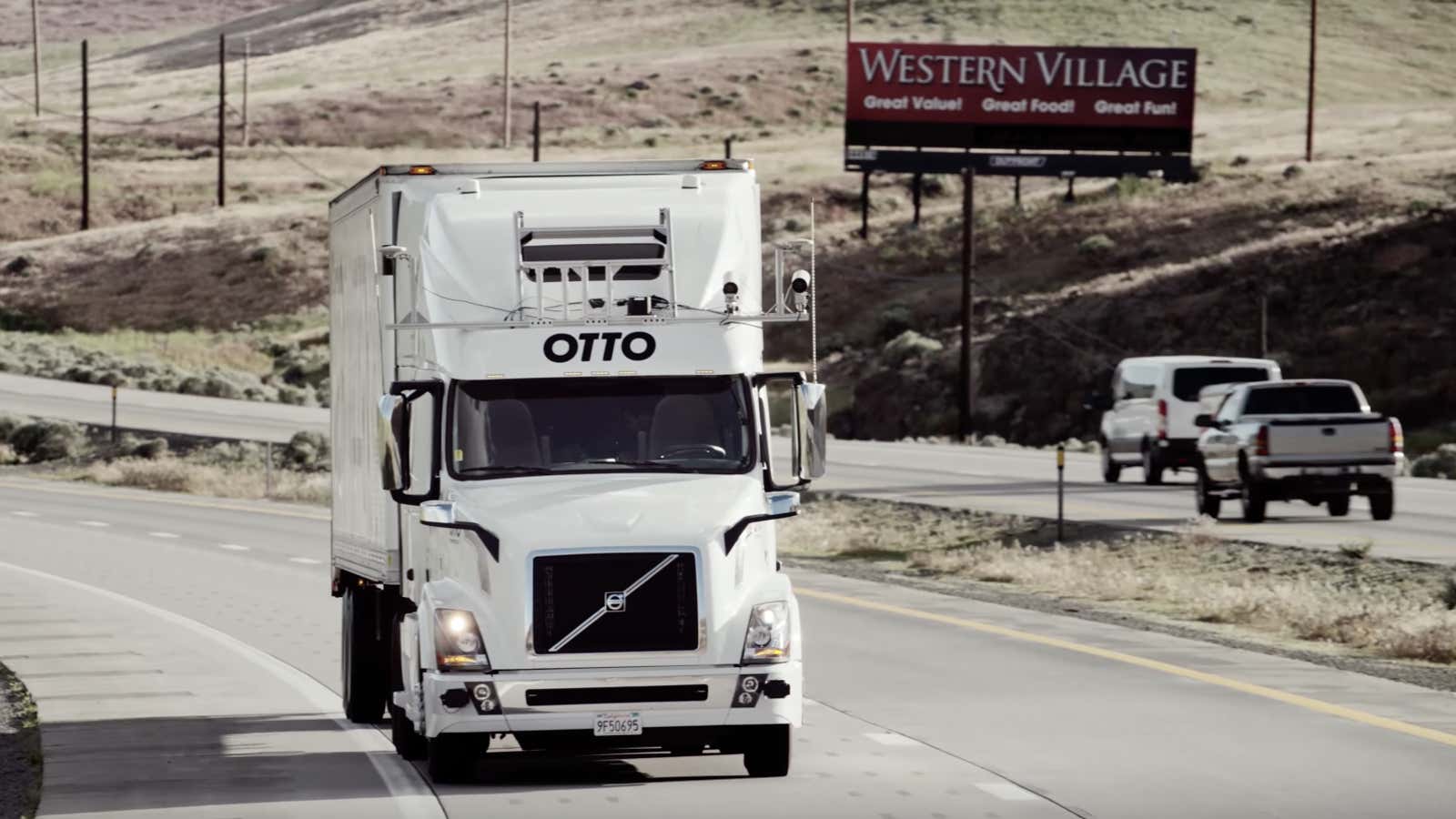Otto, a self-driving trucking startup built by ex-Googlers, darted into the spotlight earlier this month when Uber acquired it for a reported $680 million. So did Clearpath Robotics, a Canadian maker of autonomous robots that includes a division of self-driving warehouse robots named—you guessed it—Otto.
Clearpath is now suing Uber’s Otto, the full name of which is Ottomotto, for infringing on its “Otto” trademark. According to the complaint submitted to US District Court for Northern California on Aug. 24, Clearpath is worried that Otto’s use of the “Otto” brand “is likely to cause confusion, mistake or deception as the affiliation, connection or association of Defendant with Plaintiff.” Per the filing, it sounds like that’s already happened:
Due to the highly similar nature of the marks, [Clearpath] has already received misdirected inquiries from (1) the press, including a contact requesting that someone from Clearpath participate on Sirius XM’s trucking channel to discuss “Otto self-driving trucks,” as a result of a “recent article”; (2) potential customers have communicated interest in outfitting a tractor trailer with “OTTO,” and (3) [Clearpath’s] current customers, referencing the May 2016 Wired story on Defendant’s Otto, inquired if the trucking system is related to products offered by [Clearpath]. Since the announcement of the impending acquisition of Defendant by non-party Uber, [Clearpath] has also received numerous additional inquiries evidencing actual confusion.
Clearpath filed a Canadian trademark application for ”Otto” in September 2015. It filed one with the US Patent and Trademark Office this February. Ottomoto filed a trademark application for “Otto” with the USPTO roughly one month later, on March 6.
An attorney for Clearpath declined to comment beyond the court filings. Uber and Otto also declined to comment. Otto has yet to formally respond to Clearpath’s complaint, according to a database of electronic court records.
Otto was started by four ex-Google engineers, including Anthony Levandowski, the man behind Google’s self-driving car project. When it launched publicly in May, Otto aimed to automate the “unsexy” business of commercial trucking and said its “basic technology” was already being tested on public roads. “Trucks cover 5.6% of all highway miles but cause 9.5% of all fatalities,” co-founder Lior Ron told Backchannel at the time. “We want to get the technology to the point where it’s safe to let the driver rest and sleep in his cabin and we can drive for him, exit to exit.”
A big question of the Uber acquisition will be whether Otto’s team continues to work primarily on the trucking problem, or will be refocused on autonomous cars. Uber has expressed interest in becoming a comprehensive logistics platform but it is also racing to beat auto and tech competitors to market with self-driving taxis. It has promised to put a fleet of self-driving vehicles on the road for passengers in Pittsburgh—albeit with the aid of human engineers—by the end of August. Otto’s engineers could help with either goal.
In the meantime, Uber’s lawyers can busy themselves with yet another lawsuit. Earlier this month, a federal judge rejected Uber’s proposed $100 million settlement with drivers in California and Massachusetts in a class action over whether they should be classified as employees instead of independent contractors.
